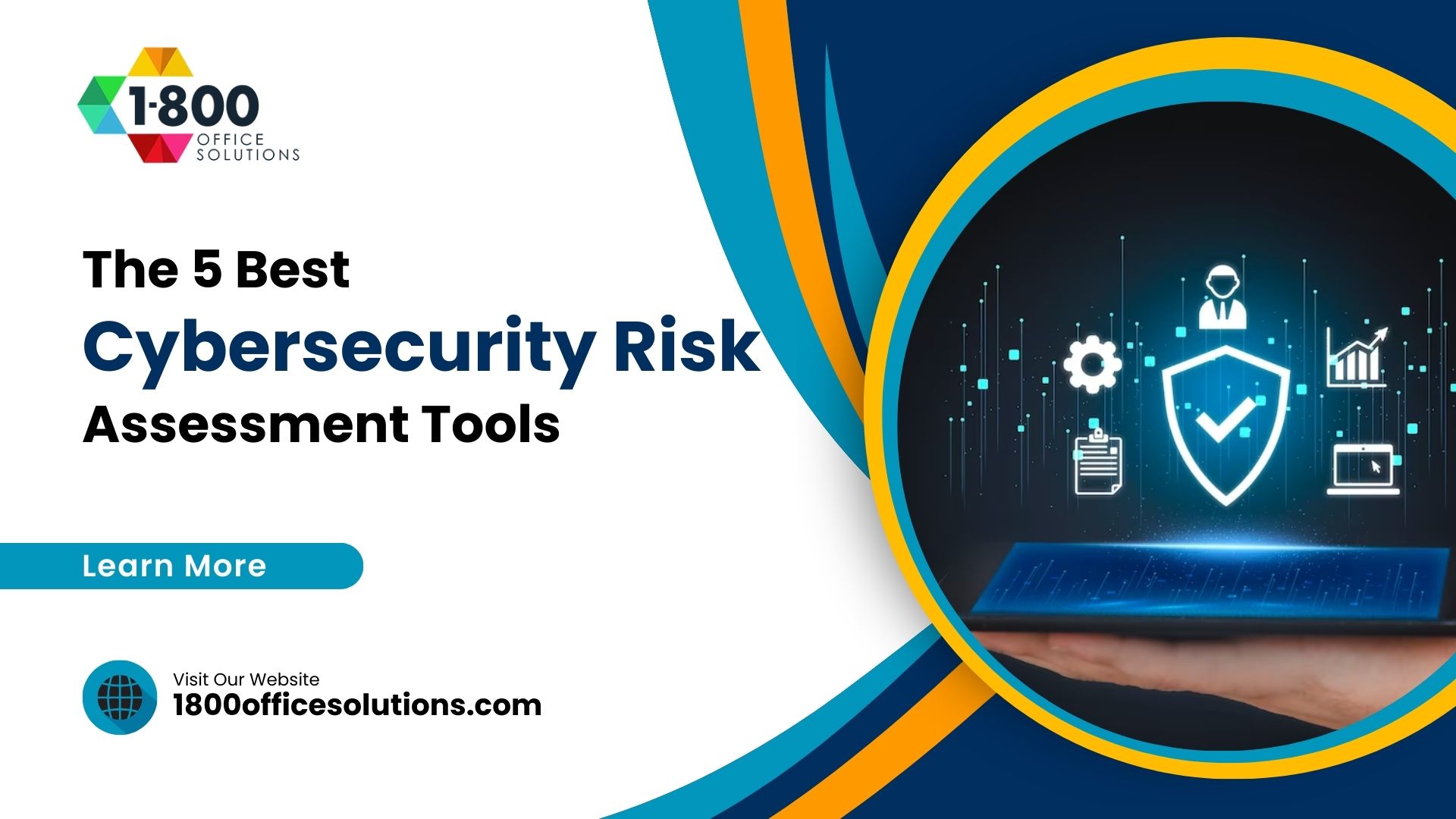Step-by-Step Guide to a Successful Junior Cybersecurity Analyst Career Path
Junior Cybersecurity Analyst
For anyone interested in a career within cybersecurity, a junior cybersecurity analyst position is the ideal place to start. Aspiring analysts will find the role is both challenging and rewarding, and with the right guidance, can help lay the groundwork for a successful long-term career in the field. This article provides an step-by-step guide to a successful junior cybersecurity analyst career path.
Understanding the role of a junior analyst is the first step. As a junior analyst, the primary responsibility is to identify, assess, and respond to cyber security threats. This requires a comprehensive understanding of existing security systems and protocols, as well as the ability to identify weaknesses and deploy effective countermeasures. Developing the necessary skills to become a successful analyst takes time and dedication, but with the right guidance, the process can be made much easier.

Understand the Basics of Cybersecurity
To understand the basics of cybersecurity, it is important to understand the different types of cyber-attacks, the principles of cybersecurity, and the various tools used to protect networks. Junior Cybersecurity Analysts are responsible for defending against these threats. They must be knowledgeable in incident response, security monitoring, and security operations.
Furthermore, they must be able to analyze security events, investigate cyber threats, and respond to them accordingly. A Junior Cybersecurity Analyst must be familiar with information security, Cisco, JavaScript, Cloud Security, Forensic, and Cryptography.
Types of Cyber-Attacks
Transitioning from the previous section, it is important to understand the various types of cyber-attacks that exist today. Cyber-attacks are malicious attempts, typically by an individual or group, to gain unauthorized access to data or disrupt the normal operations of a system, network, or application. These attacks can range from simple malware attacks to sophisticated, targeted attacks. The most common types of cyber-attacks include malware, phishing, distributed denial of service (DDoS), password attacks, SQL injection attacks, and man-in-the-middle (MITM) attacks.
Malware attacks involve malicious software that is designed to cause damage to a system or network. Malware can be in the form of a virus, worm, Trojan horse, or other malicious code. Phishing attacks involve the use of fraudulent emails, websites, and other communications to steal sensitive information or install malware on the target machine.
DDoS attacks involve flooding a system with requests, in order to overwhelm it and cause it to crash. Password attacks involve attempting to gain access to a system by using stolen or guessed passwords. SQL injection attacks involve using malicious code to access or modify a system’s database.
Cybersecurity Principles
Moving on, let’s explore the fundamentals of cybersecurity. Cybersecurity principles are essential for protecting digital and physical assets from malicious cyber threats. To do this, organizations hire junior cybersecurity analysts with job titles such as information security analyst, security monitoring, security operations, and security specialist. These professionals are responsible for identifying cyber threats and investigations, and managing incident response. Additionally, they must possess a clearance, degree in computer science, and required skills such as network vulnerability and threat analysis.
From entry level analyst jobs to analyst ii and junior soc analyst positions, junior cyber security analyst jobs are available in incident response analyst, security operations analyst, cyber security analyst ii, jr cybersecurity analyst, omnisoc cybersecurity analyst and junior cybersecurity analyst roles. Hiring right now for junior and seeking a cyber security positions are also looking for a cyber security across the country. Employers are hiring right now for junior cybersecurity analyst roles!
Cybersecurity Tools
With the ever-increasing threats of cyber-attacks, many organizations are now turning to Cybersecurity tools to help protect their data and systems. These tools come in different forms and can be used to detect and prevent malicious activities. From firewalls and antivirus programs to intrusion detection systems and malware scanners, there are a variety of Cybersecurity tools that can be used to keep networks secure.
To become a Junior Cybersecurity Analyst, one must be knowledgeable in the use of these Cybersecurity tools. They must understand the different types of attacks and the principles of Cybersecurity to effectively protect networks. Junior Cybersecurity Analysts also need to be familiar with the cybersecurity tools available and be able to use them to identify and mitigate threats.
Information Security Analysts are responsible for identifying and responding to cyber threats. They must also be familiar with cyber security tools such as anti-virus and firewalls, and be able to configure them to protect networks. Security Monitoring and Incident Response are other important aspects of the job that require knowledge of cybersecurity tools.
Choose a Specialty
When choosing a specialty within Cybersecurity, Network security, Application security, and Cloud security are all areas to consider. An entry-level Junior Cybersecurity Analyst is responsible for monitoring cyber threats and investigating any security incidents. To be successful in this job, an information security analyst requires clearance and a bachelors degree in Computer Science or a related field.
Network Security
The journey to becoming a cybersecurity expert doesn’t end with understanding the basics. It’s time to decide which field of cybersecurity you want to pursue. Network security is an attractive option, as it requires a unique blend of technical know-how and an analytical mind.

As a junior network security analyst, you would be responsible for evaluating and enhancing enterprise-wide network security. This includes evaluating network vulnerability, performing threat analysis, monitoring security events, responding to incidents, and deploying cryptography. On a daily basis, you’d be expected to detect and investigate malicious activity, track down cyber threats, and audit external threats.
To land the job, you’ll need at least a Bachelor’s degree in Computer Science or a related field or equivalent experience. Additionally, you should be comfortable with JavaScript and Cisco, and possess a security clearance level. The job title could vary from a Security Operations Analyst to an Incident Response Analyst or Security Information and Event Management Analyst.
Application Security
Stepping beyond the basics of cybersecurity, it’s time to choose a specialty. One of the most popular options is to become a Junior Cybersecurity Analyst. As a Junior Cybersecurity Analyst, you will be responsible for monitoring and protecting a company’s networks, systems, and data from malicious cyber threats. You will be expected to conduct investigations and provide incident response, along with performing threat analysis and network vulnerability enhancement. Some Junior Cybersecurity Analysts specialize in Cloud Security, Network Security, or Application Security.
In this case, let’s take a closer look at Application Security. This job includes developing and maintaining secure applications, as well as responding to any incidents related to them. It requires a deep knowledge of JavaScript, Cisco, and other programming languages, and often requires a Bachelors Degree in Computer Science or a related field. Application Security roles often require Information Assurance and Security Clearance qualifications.
Analysts in this field are responsible for ensuring that the software and applications used by a company are secure against external threats like malware and cyber threats.
Cloud Security
Transitioning from the basics of cybersecurity, it is time to choose a specialty within the field. One of the most popular specialties is Cloud Security. Cloud security involves the protection of data, applications and infrastructure that are used in cloud computing. It encompasses a range of activities like protecting cloud-based networks, systems, services, and the virtual environment in which they run.
For those seeking a junior cybersecurity analyst job, cloud security is an ideal specialty. Employers are looking for entry-level professionals with a bachelors degree in computer science or a related field or equivalent experience. They are also looking for analytical candidates who possess required skills like cryptography, network vulnerability, enhancement, IPS, and threat analysis.
Responsibilities for cloud security analysts may include evaluating and performing network assessments, monitoring and investigating cyber threats, and providing incident response. They may also be responsible for detecting and analyzing malicious activity within enterprise-wide networks and security events.
Get the Necessary Education and Training
The cybersecurity field is rapidly evolving, and it is important to have the necessary education and training to keep up with the ever-changing threats and technologies. For those interested in the junior cybersecurity analyst role, there are a variety of options available, from certifications and online courses to on-the-job training.
Certifications are a great way to get started in the field, as they provide an introduction to the core principles of cybersecurity and help demonstrate knowledge to potential employers.
Cybersecurity Certifications
Having already chosen a specialty in cybersecurity, the next step is to pursue the necessary education and training. Cybersecurity certifications are one of the best ways to demonstrate competency and open up professional opportunities. Many organizations hire certified professionals for junior cybersecurity analyst positions, and with the right certifications, you can easily transition into more senior roles.
Junior cybersecurity analyst jobs are often posted with a list of certifications required or preferred, such as Security+, CySA+, or CISSP. Employers may also be looking for certifications, such as SSCP, CCFP, or CASP, that are more specialized and demonstrate in-depth knowledge and experience. Some organizations hire based on certifications, while others use them as a way to differentiate between qualified candidates.
When researching certifications, make sure to read through each job description to understand TX the expectations and requirements. For entry-level positions, employers may be looking for certifications, such as CompTIA Security+, CompTIA CySA+, or CISSP that show that you have the basic understanding of cybersecurity concepts.
Online Courses
Transitioning to the subsequent section, obtaining the necessary education and training to become a cybersecurity analyst is a great way to jumpstart a career in the field. One of the most convenient ways to do so is through online courses. With the right certifications, one can gain the knowledge and skills needed to become a junior cybersecurity analyst and start seeking a cybersecurity analyst job.
Most online courses offer entry-level certifications, such as CompTIA Security+, Certified Ethical Hacker (CEH), and Certified Information Security Manager (CISM), which can help one to learn the fundamentals of information security and incident response. With the right certifications, one can gain the knowledge and skills needed to become a junior cybersecurity analyst and begin looking for a cyber security analyst job.
In addition to these entry-level certifications, advanced certifications, such as Certified Information Systems Security Professional (CISSP) and Certified Cloud Security Professional (CCSP), can help to provide a more comprehensive understanding of cyber threats, investigation, and clearance.
On-the-Job Training
It’s time to make the leap into the world of cybersecurity and become a junior cybersecurity analyst. On-the-job training is the perfect way to gain the necessary skills and knowledge to become a successful security professional. Employers are hiring right now for junior cybersecurity analyst roles, and there are many available options to get the required training.
To get started, it’s important to find the right role for you. Checking job boards and websites such as ZipRecruiter and Indeed can be a great way to find positions that fit your skillset. You can also take the time to research individual companies and reach out to them directly to inquire about junior cybersecurity analyst jobs.
Once you have identified the right job for you, review the job description carefully to determine what qualifications and skills are needed. This can be anything from a bachelors degree in computer science or related field, to security clearance or even specific knowledge. Once you have the necessary skills, apply for the role and get ready for the interview process.
As a junior cybersecurity analyst, you will be responsible for evaluating, monitoring, and responding to cyber threats.
Search for Job Opportunities
Searching for job opportunities can be daunting, but with networking, applying for jobs, and interviewing, you can make the process easier. Start by actively networking with junior cybersecurity analysts, information security analysts, security monitoring and incident response analysts. Reach out to people who have the job description you are looking for and ask for advice. Search for entry level positions or junior analyst jobs in your area or remote work.

Networking
Taking the next step to becoming a Junior Cybersecurity Analyst can be a daunting task, but with the right strategy in place, you can be well on your way to landing your dream job. Networking is a key part of the job search process, so it is important to make sure you are actively networking in order to land the perfect position.
Reaching out to current and former colleagues, industry professionals, and even friends and family can help you find potential job openings and referrals. It is also important to join professional organizations and attend events related to the cybersecurity industry, as this can help you gain insight into the field and make connections with potential employers. Additionally, many companies use social media to post job openings and industry news, so following companies on LinkedIn, Twitter, and other platforms can help you stay up to date on the latest job opportunities.
You can also use job boards and other online resources to search for Junior Cybersecurity Analyst positions. These websites often have a range of job postings, from Entry Level positions to Information Security Analyst positions, and allow you to search by location, job title, and other criteria.
Applying for Jobs
Taking the first step to apply for a job as a junior cybersecurity analyst can be an intimidating experience. It can seem like a difficult process to wade through, but with the right preparation and research, it’s possible to find entry level analyst jobs that fit your skills and experience. With the plethora of opportunities available, it’s important to start your search by familiarizing yourself with the job description and hiring requirements of open positions.
Once you identify which analyst jobs may be a good fit, the next step is to network. Reach out to contacts in the field to get a better understanding of the role and organization. If you have information security contacts, ask about their experiences with the company and their thoughts on the job opportunity.
The next step is to start applying for the positions you are interested in. Numerous job boards, like ZipRecruiter and Indeed, have job postings for junior analyst and cyber security analyst positions.
Interviewing
With all the hard work and preparation for landing a job as a junior cybersecurity analyst in the bag, it’s time to look for opportunities and get the ball rolling. Networking is a great way to start – you can reach out to people in your field and ask for advice, look for job postings online, or even keep an eye out for job postings on social media. Once you’ve found a promising position, it’s time to apply. When writing your resume, make sure to highlight all the skills and experience applicable to the job; it’s also important to tailor your resume to the job itself.
Interviewing is the next step after you’ve been selected as a potential candidate. It’s a great opportunity for you to showcase your knowledge and experience, as well as your passion for the job. Before the interview, do some research on the company and the position so that you can have a better understanding of the role.
During the interview, make sure to answer questions clearly and concisely, and be sure to ask questions of your own about the role and the company. Finally, be sure to thank the interviewer for their time and show your enthusiasm for the position.
Build Your Resume
Creating a resume is an important step when applying for a junior cybersecurity analyst job. Start by highlighting your relevant experience – include certifications and credentials that will help you stand out. Make sure to proofread and edit your resume thoroughly to ensure that there are no typos or inaccuracies. Use job descriptions from previous positions and mention skills such as information security and incident response that are relevant to the job you are applying for.

Highlight Relevant Experience
Building your resume is an important part of the job search process. To make sure it stands out to potential employers, it’s important to highlight relevant experience that will make you an ideal candidate for the position you’re applying for. Junior Cybersecurity Analysts must demonstrate their technical knowledge and any certifications or credentials that could give them an edge in the job market.
When highlighting relevant experience, it’s important to include job titles, duties, and any applicable skills you may have acquired. It’s also important to include information related to security such as incident response, security monitoring, security operations, security specialist, and security analyst. Additionally, include any experience related to cyber threats, investigation, clearance, cyber security operations, security events, forensics, malware, firewall, and audit.
In addition to job experience, include certifications and credentials that demonstrate your knowledge and capabilities. Bachelor’s degrees in Computer Science or a related field and clearance level are important qualifications to have.
Include Certifications and Credentials
With the goal of finding a job as a junior cybersecurity analyst in mind, the next step is to make sure your resume stands out. You will want to highlight relevant experience, include certifications and credentials, and proofread and edit your resume for accuracy.
Including certifications and credentials on your resume will help you stand out, as they demonstrate that you have the skills to take on a junior analyst job. Many employers may ask for cybersecurity analyst certifications and credentials, as they are the best way to prove your knowledge and experience. You should include any relevant certifications and credentials that align with the information security job description, such as TX, entry level, incident response, security monitoring, security operations, security specialist, incident response analyst, junior SOC analyst, analyst location, security operations analyst, Cyber Security Analyst II, and OmniSOC Cybersecurity Analyst.
You can also look for available junior cybersecurity analyst jobs online, or visit job boards like ZipRecruiter to see junior cybersecurity analyst roles.
Proofread and Edit
Now that you have gathered all the relevant information for your resume, it’s time to proofread and edit it before you submit it out. A resume is one of the most important documents you will ever create and making sure it is error-free is paramount.
When proofreading your resume, consider having a friend or colleague review it as well. This will help you catch any errors you may have overlooked. Additionally, look out for incorrect grammar, spelling mistakes, and unclear phrasing.
When it comes to editing, you may want to consider the following steps:
- Condense your work experience and education sections to make sure you are only including the most pertinent details.
- Highlight important skills and qualifications that are relevant to the position you are applying for.
- Check for any formatting errors and make sure that your margins, font size, and spacing are consistent throughout.
- Remove any irrelevant information and make sure your resume is concise and to the point.
Finally, make sure to proofread and edit your resume multiple times.
Prepare for Your Interview
Preparing for an interview is an important step when seeking a junior cybersecurity analyst job. Researching the company, practicing answers to common questions, and preparing questions to ask the interviewer will help ensure success.

Begin by researching the company, getting familiar with the job description, and understanding the required skills. Look for entry level and junior analyst positions in cybersecurity. Also, browse for junior cybersecurity analyst roles in Texas (TX) and other locations.
Next, practice answers to common questions related to the position.
Research the Company
To make the most of an upcoming job interview, it is important to prepare in advance for the meeting. Researching the company is an important step in the process: it can help the interviewee gain insights into the company culture and the position they are applying for. By taking the time to explore the company’s website, read their mission statement, and review any press releases or news articles related to the company, an applicant can become better informed and more prepared to answer questions about the company and the role they are hoping to fill.
The first step is to search for the company’s website and look for a job description that is specific to the role they are interviewing for. This information is often found on the careers page, or the jobs section of the website. Here, one will find the qualifications, duties, and responsibilities associated with the role. It is a good idea to read through the job description carefully and make notes of the required skills or qualifications related to the position.
Additionally, it is important to research any recent news or press releases related to the company. This will help to provide further insight into the company’s mission and operations.
Practice Answers to Common Questions
Having a great resume is a great start to your job search, but the real work happens when you step into the interview. To ensure you make the best possible impression, it is important to thoroughly research the company and practice your answers to likely questions.
When researching the company, look beyond the basics. Read about their history, mission, and goals. Find out what makes them unique and what opportunities they offer. Consider the type of work the company does and the culture they foster. The more you know, the more you can explain why you are the ideal candidate.
When preparing for your interview, think of potential questions you may be asked and practice your answers ahead of time. This can help you feel more confident and present yourself in the best light. Consider questions related to the job description and skills you possess. You may also be asked about any experience you have in the field or other roles you have held. Remember to think about not only what you have done but also what you have learned and achieved.
To stand out from the other candidates, highlight the skills and experiences that make you unique.
Prepare Questions to Ask the Interviewer
Now that you have your resume prepared, it’s time to get ready for your interview. Researching the company and the job description for the entry-level analyst job you are seeking is an important part of the interview process. You’ll want to be as informed as possible about the position you are applying for, and if you have the opportunity to interview remotely, you should take advantage of it to get a better sense of the company culture.
Practicing answers to common questions is also a key part of the preparation process. You’ll want to have an answer ready for questions such as: what interests you about the junior cybersecurity analyst role? What do you know about information security and cyber security? And why should the company hire you?
Preparing questions to ask the interviewer is also an important part of the process. It’s a good idea to have a few questions ready that demonstrate your knowledge and interest in the cyber security analyst job. Some possible questions could be: What type of incident response is expected from a junior analyst?
Network and Stay up to Date
Joining professional organizations, attending conferences and seminars, and reading industry publications are essential steps for any aspiring junior cybersecurity analyst to take in order to stay up to date and network. These activities are an invaluable way to build knowledge, skills, and connections in the field and remain a highly sought-after hire.

Companies increasingly require a job description that includes experience in incident response, security monitoring, information security, and cyber security operations, so these activities provide an opportunity to develop the necessary expertise to be a successful analyst.
Join Professional Organizations
With the groundwork laid in preparation for your interview, it is now time to network and stay up to date with the industry. This can be done by joining professional organizations, attending conferences and seminars, and reading industry publications.
When it comes to joining professional organizations, there are several to choose from that specialize in the cybersecurity field. Organizations like ISSA, ISC2, and (ISC)2 are great options that offer membership benefits including discounts on conferences, industry events, and training opportunities. They also have chapters in cities around the world, so you can find one near you with ease.
These organizations also offer the chance to connect with other professionals in the industry. You can meet experienced professionals who can provide career advice and guidance. You can also use these networks to find out about job openings that you may not have heard of otherwise.
Furthermore, these organizations hold conferences and seminars that you can attend to stay up-to-date with the latest trends in cybersecurity. Attending events like these will provide you with a better understanding of the field and any new developments that have been made.
Finally, reading industry publications is a great way to stay on top of the latest news and advancements in the cyber security field.
Attend Conferences and Seminars
Building on the knowledge gained from your interview preparation, the next step is to network and stay up to date on the latest industry trends. Attending conferences and seminars can be a great way to stay informed and meet potential employers.
There are many conferences and trade shows that are focused on cybersecurity and the information security industry. These events provide an excellent opportunity to build your professional network and gain insight into the latest trends in the industry. It is also a great way to meet potential employers and learn more about the job market.
At these events, you can also gain exposure to new technologies, learn from experts, and network with like-minded professionals. Additionally, attending conferences and seminars can be a great way to show potential employers that you are dedicated to staying on top of the latest developments in the industry.
Finally, many of these events offer entry level positions for cybersecurity analysts and other information security jobs. If you are seeking a cyber security role, attending a conference or seminar can be a great way to find job opportunities and secure a hire.
Read Industry Publications
With the right networking and staying up-to-date, you can become an influencer in the field of cybersecurity. One of the best ways to make sure you’re on top of the latest trends and advancements is to read industry publications. This can be done online, through magazines, or a combination of both.
When you read industry publications, you’ll be able to learn more about what’s going on in the field and stay up-to-date on the latest cyber threats and incident response protocols. This knowledge can help you as a junior cybersecurity analyst by giving you the information you need to be successful.
In the publications, you can also find job descriptions and learn about entry level positions and hiring trends. This can help you identify junior cybersecurity analyst jobs that may be a good fit for you. You can also find information about security operations, incident response analyst positions, and security monitoring roles.
You can search for industry publications that are specific to your field, such as cyber security analyst or information security.
Develop Your Career Path
To develop your career path, consider career advancement options, find mentors and advisors, and research potential employers. Junior cybersecurity analysts can start by browsing available jobs, and looking for entry-level analyst positions in information security or cyber security. Hirers will often provide a job description to give potential applicants an idea of what the role entails. Review the location, salary, and required skills to determine if the job is the right fit.
Consider Career Advancement Options
With the ever-evolving landscape of security, it is important to consider career advancement options to stay ahead of the game. This means researching what employers are hiring right now for Junior Cyber Security Analysts, the qualifications they are looking for, and the skills needed to stand out and get hired. This also includes staying up-to-date with cyber threats and the latest security technologies.
When looking for a Junior Cyber Security Analyst job, it can be helpful to look for entry-level analyst jobs or junior analyst jobs. This can include roles such as Information Security Analyst, Security Monitoring and Incident Response Analyst, Security Operations Analyst, Cyber Security Analyst II, or OmniSOC Cyber Security Analyst. It is also important to take note of the job description, job title, location, and required skills.
Furthermore, it is important to research potential employers and determine if they are a good fit for you. This means looking into the company culture, the benefits, and the type of work they do.
Find Mentors and Advisors
Transitioning from staying up to date and networking, it is important to consider the many options for career advancement. Finding mentors and advisors can be a great way to learn more about the field of cybersecurity and the job market. Mentors and advisors have worked in the industry for a long time and can provide invaluable insight, especially in regards to researching potential employers.
The first step in finding mentors and advisors is to identify people who have the knowledge and experience in the field. This can be done by networking in the cybersecurity industry or looking on job boards for available junior cybersecurity analyst jobs. LinkedIn is a great resource for connecting with potential mentors and advisors. Once you have identified a few potential mentors and advisors, reach out to them to discuss their experiences and potential opportunities.
When considering mentors and advisors, it is important to ask questions about their background and experience. Ask them what information security analyst jobs they have held in the past and how they have been successful in the field. You should also inquire about security monitoring and incident response, as well as cloud security, forensic, and other related topics. Additionally, ask about hiring practices and security operations, as these are important for any cybersecurity job.
Research Potential Employers
Having already established a network and staying up to date on changes in the field, the next step is to develop your career path. Researching potential employers is an important part of choosing the right path for you. Start by evaluating what types of cybersecurity analyst jobs you can apply for. Check the job description for each role to ensure that you meet the requirements.
Even if you’re just starting out, junior cybersecurity analyst jobs are available. You can find entry-level and junior analyst jobs in information security, incident response, security monitoring and more. Hire companies such as OmniSOC and TX are always looking for cybersecurity analysts, and browse ZipRecruiter for available junior cybersecurity analyst jobs hiring right now.
When you’ve found the job you’re interested in, research the employer.
Conclusion
The path to becoming a successful Junior Cybersecurity Analyst is not a simple one. It requires dedication, hard work, and a passion for technology. But with the right guidance and resources, anyone can achieve their goals and become a successful security analyst. From understanding the basics of cybersecurity to developing your career path, this step-by-step guide provides all of the necessary tips and tricks to get you there. With the right preparation, you can start your journey to becoming a great cybersecurity analyst.
By taking the time to research and invest in your career, you can make sure that you are on the right track towards achieving your goals. Stay up to date with the latest industry trends, network with other professionals, and continue to build your skills and knowledge. With hard work and dedication, you can be confident that you will be able to reach the top of your field.










